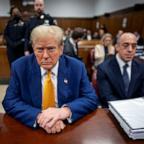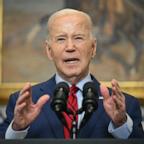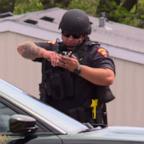Death Squads Behind Spike in Iraq Killings
Sept. 1, 2006 — -- Sectarian violence in Iraq has become the "core conflict" in Iraq and has created a security situation American military commanders believe is more complex than any they have faced at any time since the U.S. invasion in 2003, a sober Pentagon report released today says.
Death squads -- both Shiite and Sunni, "locked in mutually reinforcing cycles of sectarian strife" -- have been the cause of most of the rise in violence, according to the the most recent of the congressionally mandated reports that are released every three months and provide the Pentagon's assessment of the ongoing situation in Iraq.
"It's a pretty sober report this time, the last quarter has been rough," Assistant Secretary of Defense Peter Rodman said.
He noted that the spikes in violence and its sectarian focus are "particularly acute and disturbing."
According to the report, the last three months have seen a 15 percent increase in the number of weekly attacks and Iraqi casualties have spiked 51 percent.
While recognizing that the conditions for a civil war exist in Iraq, it concludes a civil war does not exist in Iraq. Optimistically, the report adds that "movement toward a civil war can be prevented."
According to the report, two key indicators of civil war have not occurred in Iraq.
"There is no parallel government that is attempting to replace the elected government. And the military has remained loyal to the central government. There is no splintering of the military," Rear Admiral William Sullivan of the Joint Staff said.
That doesn't mean, though, that there is not a great deal of concern about the situation. Sullivan said top military and civilian leaders remain worried by the increase in sectarian violence and "are not blind to the possibility that this could continue down the wrong path."
In fact, Sullivan acknowledged that the main concern for military planners right now is not the insurgency, but the "sectarian problem," which he said is "much more politically significant at the moment."




